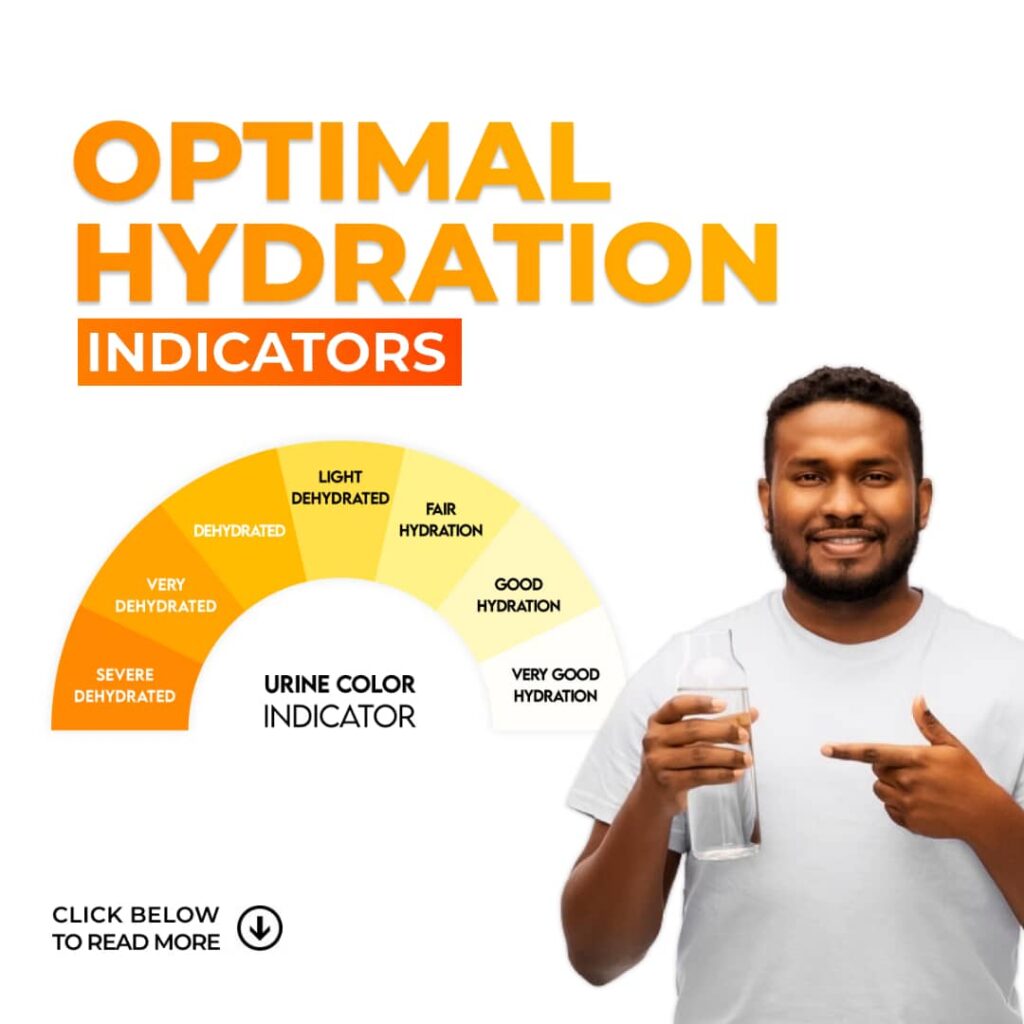
Maintaining optimal hydration is crucial for bodily functions and overall health. Various indicators help assess hydration levels. One of them are the physical indicators.
PHYSICAL INDICATORS are the simplest indicator check that can be self-conducted by anyone.
These involve the urine colour as determined by the quantity of the urine output. The more concentrated the urine (dark colour), smaller volume with associated sharp smell, the higher the dehydration level.
The following are some things to look out for in ones urine to assess individual level of hydration. For well hydration:
- Urine Output: 4-7 cups (1-2 litres) per day.
- Urine Color: pale yellow or clear.
- Thirst Level: minimal or no thirst.
- Mouth Moisture: soft, moist lips and mouth.
- Skin Elasticity: skin snaps back quickly when pinched.
- Eye Moisture: bright eyes with no sunken appearance.
The second group of indicators are the physiological indicators. These ones have to do with the body physiology as influenced by the hydration level of the body. A good hydration level significantly contributes to the following body vitals:
PHYSIOLOGICAL INDICATORS
- Blood Pressure: stable and within normal ranges.
- Heart Rate: regular heartbeat and not excessively fast.
- Cognitive Function: clear thinking, focus, and concentration.
- Digestive Health: regular bowel movements and minimal constipation.
The third group of indicators are the blood workups. The physician will need to request for the tests and evaluate the results. These include;
LABORATORY TESTS
- Blood Urea Nitrogen (BUN)
- Creatinine level
- Urea level
- Electrolyte check
To remain hydrated, consider the following additional factors:
- Drink 8-10 cups of water per day.
- Adjust intake based on activity level, climate, and individual needs.
- Monitor urine output and colour.
- Eat hydrating foods (watermelon, cucumbers).
- Limit dehydrating substances (caffeine, alcohol).
Finally, consult healthcare professionals for personalised hydration assessments and guidance.